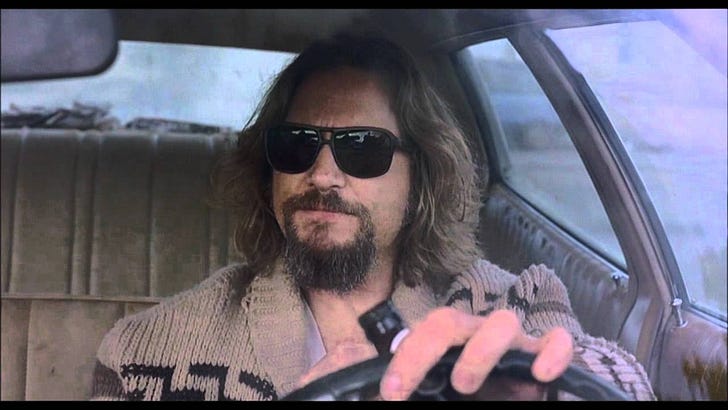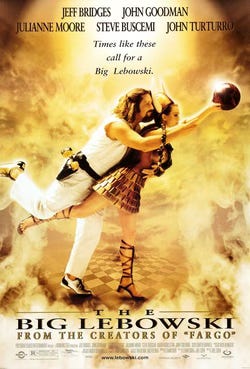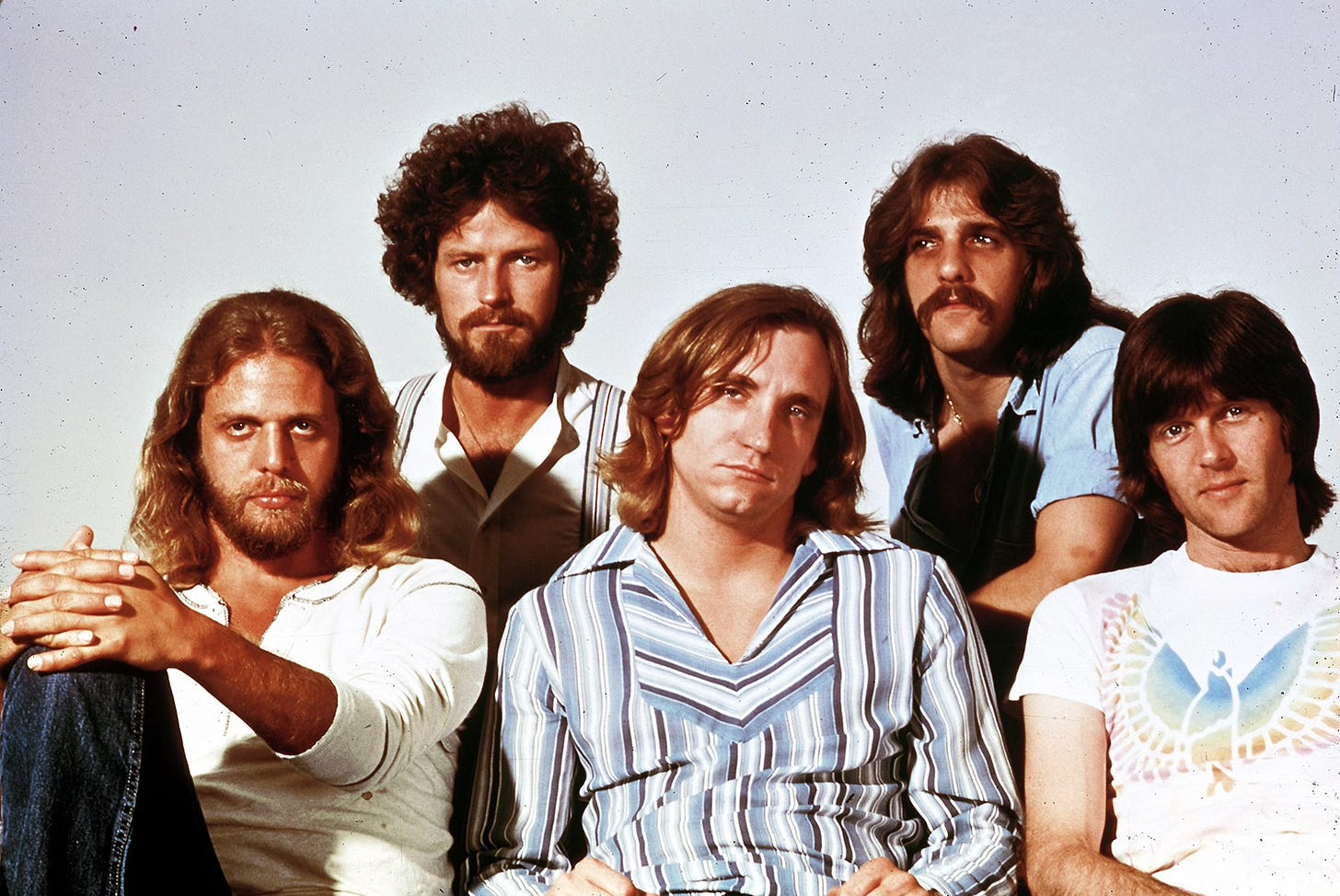It really ties the movie together
Thinking about the Big Lebowski and the two bands at the heart of it.
As a man of a certain age with a certain facial hair configuration, it should not be a surprise that I’m a fan of The Big Lebowski. I’m quite adept at drinking a few Caucasians and rattling off quote after quote from that film.
It’s also a film whose “meaning” (as it were) has interested me. It’s a re-imagining of Raymond Chandler/Philip Marlowe stories; it’s maybe a kind of allegory or engagement with the Gulf War; it’s a reckoning with the legacy and afterlife of the 1960s. There’s a lot to this film. You know, a lotta ins, a lotta outs, a lotta what-have-yous. And, uh, a lotta strands to keep in my head, man. Lotta strands in old Duder's head. Oh wait, I lapsed into quoting. Let’s get back on track.
Lebowski also stands as kind of totem for all things California. Specifically, the use of music highlights that element of the film. Perhaps one of the most oft-quoted lines/references aspects of Lebowski comes in the famous exchange between the Dude and the taxi driver after being ejected from Jackie Treehorn’s party and picked up by the Malibu police, concerning his thoughts on the Eagles.
You also get that band popping up elsewhere in the film, specifically the famous introduction of the Dude, Walter, and Donny’s chief bowling adversary set to a Gypsy Kings cover of an Eagles song.
The Eagles are one of, if not the, definitive Los Angeles band. They emerges from that scene in the 1970s. Don Henley and Glenn Frey played together backing up Linda Ronstadt at Disneyland before coming together to form the Eagles. I mean, that’s pretty darn Los Angeles.
But if one thinks about the 1970s, the Sunset Strip, (probably) cocaine and other substances, and rock star excess, the band you’re probably thinking about is the Eagles. They’re a band associated with the excess, glitz and glamour, slickness that (rightly or wrongly) is associated with Los Angeles. They’re a group who would seem to fit perfectly in the world of Jackie Treehorn and his upscale debauchery.
By contrast, the band that’s closely associated with The Dude is Creedence Clearwater Revival. We hear multiple Creedence songs in the film, including “Run Through the Jungle” and “Lookin’ Out My Back Door,” and there’s famously a tape of Creedence in the tape deck of his car that is stolen.
But I think there’s more to it than just that CCR is a famous and popular band that fits in well on a movie soundtrack.
While they affected a kind of southern bayou posture, John Fogerty and co. were from Northern California (specifically, the East Bay of the San Francisco Bay Area).
While the Eagles are associated with the decadence in the culture of the 1970s, Creedence was a band of the 1960s (I mean, they played at Woodstock). While CCR isn’t like, say, the Grateful Dead or Jimi Hendrix (really psychedelic bands), I think the kind of earthiness of their music feels very appropriate for the 60s.
It makes sense that the Dude, who loves to smoke pot and drive around, would be drawn to a group that emerged from the 1960s and have such a negative reaction to a group in the Eagles. If there’s someone who would know how to “keep on chooglin,’” it would be the Dude.
I’ve always thought this was a film that was about California—the Dude and his CCR-loving ways standing in for Northern California, you have Jackie Treehorn and the Eagles as the avatars for Southern California. You could also think of Jeffrey “The Big” Lebowski as a stand-in for the Reagan conservatism that played a role in the state’s electoral politics for a long time. Also, the Stranger is obviously in the vein of a cowboy, but you don’t have to get too far from that to someone coming out to California to pan for gold in the 1840s-1850s.
But thinking about the Dude’s love for a band so closely associated with Northern California and his hatred of a group so closely linked to Southern California, I’ve always thought of the film as being about those Two Californias and the ways in which they interact with one another and critique one another.







That's just, like, your opinion, man...
Really well written. I especially like the weed vs coke distinction. When powder supplanted herb, the Coast (and rock music) changed. And not for the better. Thanks for this piece.